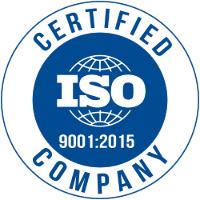What is ISO registration process and why is ISO certification necessary?

In today's global marketplace, ISO certification has become
an essential requirement for businesses that want to gain a competitive edge
and demonstrate their commitment to quality and continuous improvement. ISO,
which stands for the International Organization for Standardization, is an
independent, non-governmental organization that develops and publishes
international standards for various industries and business sectors.
ISO certification is a process by which a company is audited
by an independent third-party organization to ensure that it meets specific ISO
standards. The ISO
registration process involves several steps, including a gap analysis,
documentation review, internal audits, and a final certification audit. Once a
company successfully completes the ISO registration process, it receives a
certificate that demonstrates its compliance with the relevant ISO standard.
There are several ISO standards, each of which is designed
for a specific industry or business sector. For example, ISO 9001 is a quality
management system standard that applies to all industries, while ISO 14001 is
an environmental management system standard that is relevant to companies in
the environmental sector. Other ISO standards include ISO 27001 for information
security management, ISO 45001 for occupational health and safety management,
and ISO 50001 for energy management.
ISO certification is necessary for several reasons. First,
it can help companies improve their overall efficiency and effectiveness by
providing a framework for continuous improvement. ISO standards are based on
best practices and are designed to help companies identify and address areas
for improvement in their processes, procedures, and systems.
Second, ISO certification can help companies gain a competitive
advantage by demonstrating their commitment to quality and customer
satisfaction. Many customers, particularly in the B2B sector, require their
suppliers to be ISO certified as a condition of doing business. ISO
certification can also help companies expand into new markets, particularly in
countries where ISO certification is a requirement for doing business.
Third, ISO certification can help companies reduce their
risk and liability by ensuring that they are compliant with relevant laws and
regulations. ISO standards are often based on legal and regulatory
requirements, so compliance with ISO standards can help companies avoid fines,
penalties, and legal disputes.
Finally, ISO certification can help companies improve their
relationships with stakeholders, including customers, employees, and suppliers.
ISO certification demonstrates a company's commitment to quality, safety, and
environmental responsibility, which can improve its reputation and brand image.
In order to obtain ISO certification, companies must first
identify the relevant ISO standard for their industry or business sector. They
must then conduct a gap analysis to identify any areas where they need to
improve in order to meet the requirements of the ISO standard.
Once the gap analysis is complete, companies must develop a
documentation system that demonstrates their compliance with the ISO standard.
This documentation system must include policies, procedures, and records that
demonstrate that the company is following the requirements of the ISO standard.
After the documentation system is in place, companies must
conduct internal audits to ensure that their processes and procedures are
compliant with the ISO standard. These internal audits are typically conducted
by trained employees or consultants who are familiar with the requirements of
the ISO standard.
Finally, companies must undergo a certification audit by an
independent third-party organization. This audit is designed to ensure that the
company's documentation system and internal audits are effective and that the
company is in compliance with the ISO standard.
In conclusion, ISO certification is necessary for businesses that want to demonstrate their commitment to quality, continuous improvement, and compliance with relevant laws and regulations. The ISO registration process involves several steps, including a gap analysis, documentation review, internal audits, and a final certification audit. ISO certification can help companies improve their efficiency and effectiveness, gain a competitive advantage, reduce their risk and liability, and improve their relationships with stakeholders. By obtaining ISO certification, companies can demonstrate their commitment to quality and continuous improvement and position themselves for success in today's global marketplace.
Post Your Ad Here
Comments